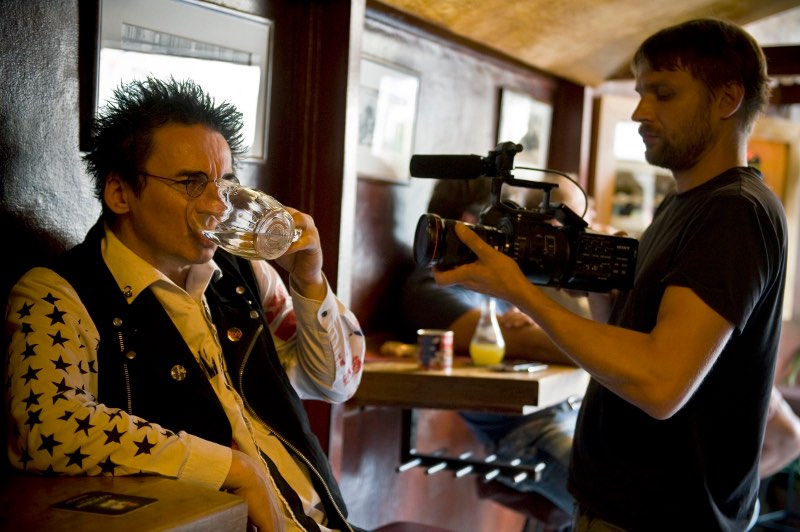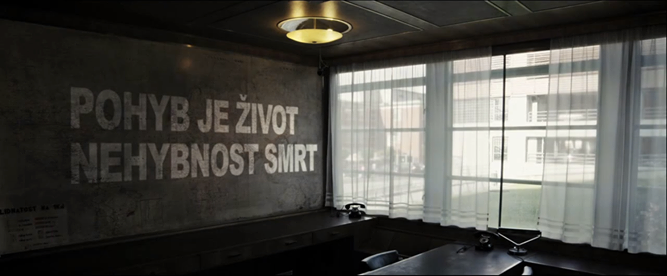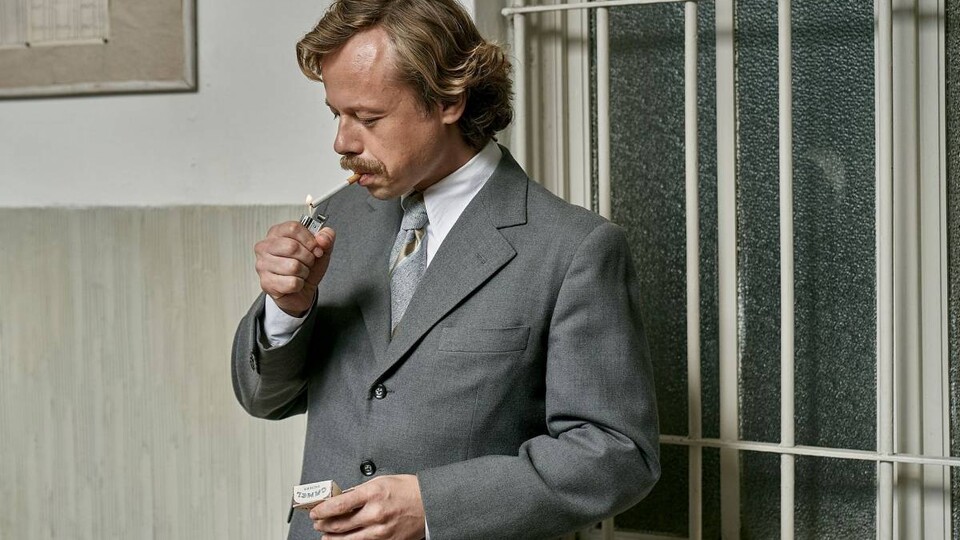(Un)usual Energy of the Tribes?
Given the passionate debates concerning the public television series Příběhy neobyčejné energie (Stories of Unusual Energy) and Kmeny (Tribes), to which the private sector financially contributed, we wanted to provide the actual filmmakers with room for discussion. Bohdan Bláhovec and Jan Látal are the authors of some episodes of Tribes. Vít Klusák and Lukaš Kokeš decided not to participate in the project.
BB: A series initiated or coproduced by foundations of large corporations or an advertising agency uncovered a peculiar relationship that Czech Television has towards the production and financing of documentary films. It itself has no intention of investing in them, therefore it welcomes the arrival of external money, without, in my opinion, thinking through where the situation can end up leading to – that there is risk of someone buying cheap advertising space, especially advertising which is distributed under the pretence of creative and open film communication.
JL: In principle, I welcome when any business realises that through supporting others they can promote themselves, or when they decide to support a free creative piece of work in return for a signature below it. It is a new concept of self-promotion, which I see as one part of corporate social responsibility. In the same breath, I want to add, thank God for that. Advertising expenses are then capable of coproducing something other than just empty ad slots in television or a republic that is plastered with billboards. I want to add, that it only comes to this under the condition that there are specific boundaries that the company supporting or coproducing the documentary work cannot cross.
Media under pressure
LK: Some form of sponsorship or patronage over documentary films, is certainly feasible, if they do not aim to criticize a consumer society. Sponsorship and patronage are however not the same as the coproduction of public television with advertising agencies, which aim to hit different kinds of targets. Those are drawn lines that are important to me. When such a coproduction takes place in the context of commercial television, it can hardly surprise anyone.
VK: I want documentaries to originate exclusively for the authentic purpose of analysing an issue through film, uncovering, understanding and preserving it for future generations. Just like that I also want for advertising to be stupid, un-hypocritically utilitarian, therefore, recognizable and clearly encapsulated in an advertising cocoon. I want to understand who is trying to play with me. Who is telling me what type of a purpose they seek. Therefore, I refused to collaborate on the television series Tribes.
LK: The debate concerning the marketing circumstances of both series follows a more general context, which we forget to mention. Those have to do with the transformation of the whole media field. The internet weakened traditional media, which is not capable of effectively distancing itself from corporate, advertising, but also political and ideological pressure. Nothing special is happening in documentary film. If we don’t observe the invasive penetration of brands into creative documentary, which we have so far seen as extremely independent and authentic, then it is because advertising already invaded the rest of public and media space a long time ago.

Tribes: Punk
JL: I do not share this slightly apocalyptic vision of advertising, which devours us without notice. However, it is true that it is changing, has adapted to us and perhaps is even less recognizable. Due to the merging, a new kind of coexistence that does not frighten me may occur. But only under the condition that everything is done under strict and transparent rules, so we do not become vassals of other veiled interests.
LK: Today even respected world dailies such as The New York Times or The Independent are being criticised for so-called native advertising, when there are advertising articles as part of normal content, without appropriate warning, which are paid for by various corporations. These articles don’t have to promote any specific products. On the contrary, all it takes is when they support the ideological foundations advantageous for a specific corporation or group of people. At the end of the film Citizenfour on Edward Snowden there is a scene where The Guardian withdraws and does not publish material regarding wiretapping, in fact they are required to physically destroy discs containing all the documents, all done under pressure from the British government. In comparison with such an example the debatable penetration of advertising into creative documentary film pales.
Budvar worth following
BB : The actual series Tribes can be seen as questionable when it comes to its ability to provide information or depth of expression, but certainly cannot be viewed just as a promotional product. The variety of films and the not so positive reception by the television audience, in my opinion, only underlines the fact that it is an independent piece of work. I also view the piece by Jan Gogola, František svého druhu (František of His Own Kind), from the Příběhy neobyčejné energie as an auteur film.
JL: For me, when it came to the series Tribes, the guarantee of creative freedom was crucial. Nobody meddled with my film. On the contrary, from the beginning I felt a great emphasis was being placed on our authorship. All of that contributed to my impression that lasted even after premiers in clubs across the republic and it was the fact that we are not promoting Budvar, but Budvar is promoting us and our films. That is a change in thinking that deserves to be followed.
VK: You say that the work was carried out without any interference, but you neglect to mention the fact that the advertising nature influenced the choice of themes. Techno fans refused to participate in the television series Tribes, in the case of ČEZ (České Energetické Závody – Czech Energy Industries), which co-funded Příběhy neobyčejné energie, a man who somehow alternatively mines gas from shale was kicked out. The intervening doesn’t always have to mean that the agencies with the client are on the spot and want to discuss the shot with the director at the monitor. The essence of the problem lies in the merging boundaries. In the attempt to borrow authenticity and independence of film documentaries and the non-commercial reputation of Czech television, there is an effort to blend it with an advertising message. The advertising only subtly refers back to the sponsor, alias client, and plays up a phenomenon – the brewery and distillery connected with "the independent" subculture world and identifies ČEZ with nonprofits.

Tribes: Cosplay
LK: Creative documentary in its original authenticity is an excellent potential carrier of advertising messages. Therefore advertising agencies pay attention to it not only here, but worldwide. In the competition of Sundance festival the documentary film, Escape Fire, was produced by the agency Ogilvy in the year 2012. The film did not promote anything in the traditional sense of advertising. It only promoted the ability of the Ogilvy agency to "authentically" break into the space of the independent film festival. I find it important not to lose sight of such things.
BB: The situation surrounding both series certainly opened up an important debate within the documentary community and also started a joint pressure that other creators intend to impose upon television. One of its outcomes could perhaps be that the autonomy of creative producer groups could be enforced in CT Programming Council and ideally there will also be an increase in the number of broadcasting hours for individual documentary films.
Translated by Floriana Skorulska



